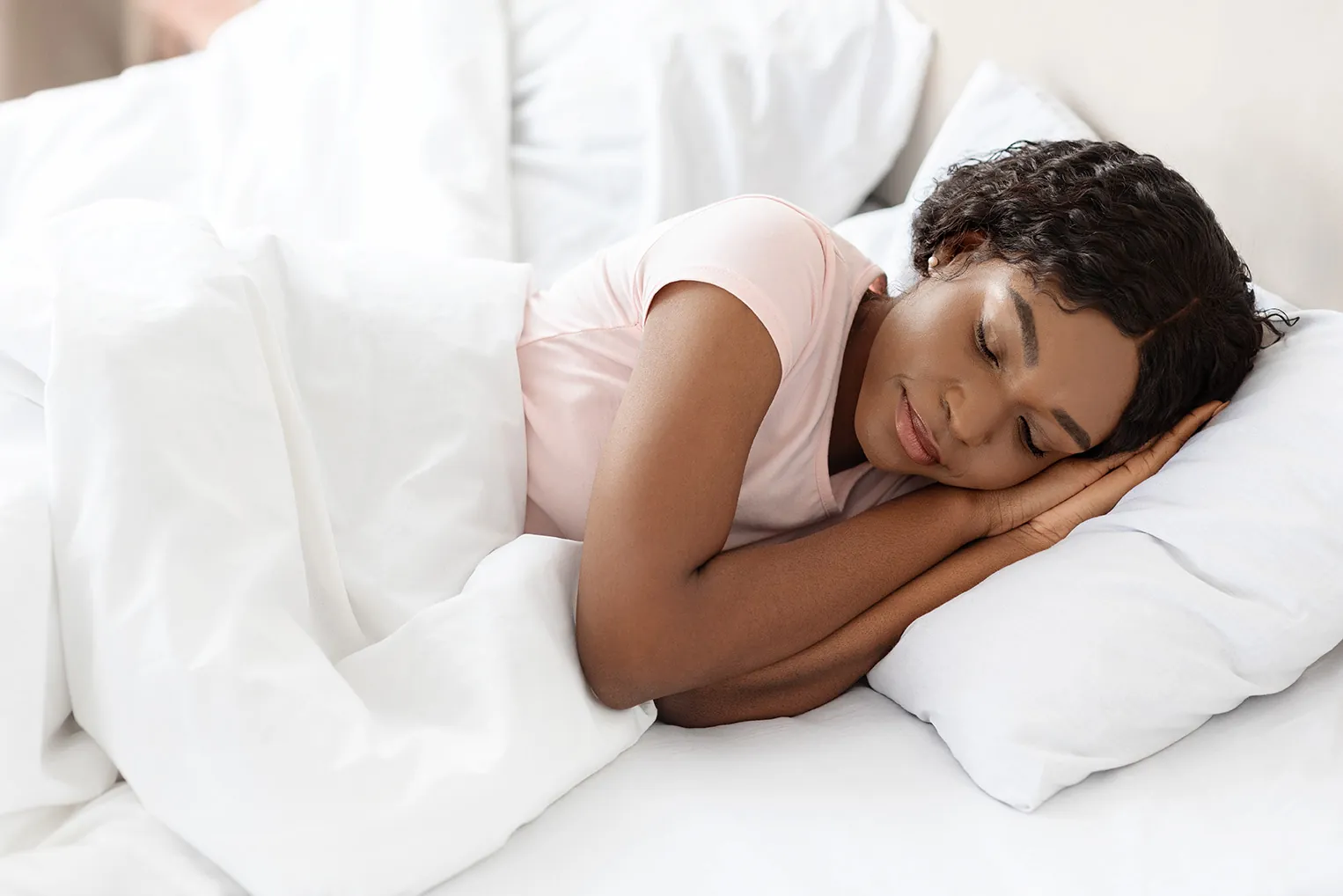Skin and Sleep: The Role of Sleep Hygiene in Skin Healing and Appearance

A good night’s sleep restores both your energy and your skin, giving the body time to repair and renew. While you rest, your body goes into repair mode, healing damage, renewing cells, and producing the building blocks that keep skin smooth and resilient. When sleep is cut short or disrupted, those processes slow down, leaving skin more vulnerable to dryness, dullness, and flare-ups of common conditions.
Sleep is one of the most powerful (and underrated) tools for healthy skin. Understanding the connection between sleep hygiene and skin health can help you build habits that support both rest and radiance.
The Science of Beauty Sleep
During deep sleep, blood flow to the skin increases, allowing oxygen and nutrients to reach cells more efficiently. This is when the body repairs damage from daily stressors like sun exposure, pollution, and minor injuries.
Sleep also stimulates the release of growth hormone, which plays a critical role in tissue repair. Collagen production peaks overnight, helping maintain firmness, elasticity, and a youthful appearance. Without enough sleep, collagen synthesis slows, and fine lines, sagging, and delayed healing become more noticeable.
How Sleep Affects Skin Health
Sleep is directly linked to wound healing. Research shows that cuts and scrapes take longer to repair when the body is deprived of rest, underscoring how important sleep is for recovery at the cellular level.
Quality rest also supports hydration balance. Sleep-deprived skin is more prone to dryness and irritation. At the same time, poor sleep raises stress hormones like cortisol, which can trigger inflammation and worsen redness or sensitivity.
Even a single night of poor rest can show on your face. Dark circles, puffiness, and a dull complexion are common after sleep loss—outward signals of what’s happening beneath the surface.
The Connection Between Sleep and Skin Conditions
Sleep directly influences how your skin behaves and heals. For people living with chronic skin conditions, poor rest can act as a powerful trigger, making symptoms harder to control and recovery slower.
- Acne: Inadequate sleep can heighten inflammation and disrupt hormone balance, both of which fuel breakouts. Patients often notice flare-ups after periods of stress or irregular sleep schedules.
- Eczema: Without enough rest, the body struggles to regulate itching and repair the skin barrier. This can lead to more frequent flare-ups and increased discomfort.
- Psoriasis: Poor sleep interferes with immune system function, a key factor in psoriasis activity. Flare-ups may become more severe or more frequent when sleep quality declines.
- Immune system support: Quality sleep strengthens immune defenses, which help protect against infections and reduce chronic skin inflammation. Consistently good rest can make the skin more resilient overall.
Sleep and skin health are closely tied, making rest an essential part of managing both everyday concerns and chronic dermatologic conditions.
Sleep Hygiene: What It Means and Why It Matters
“Sleep hygiene” means shaping daily habits around your body’s natural circadian rhythm, the internal clock that regulates sleep, hormones, and skin cycles.
When sleep hygiene is poor (irregular bedtimes, bright screens late at night, high stress), it becomes harder to fall asleep and stay asleep. Over time, this disrupts the nightly repair processes your skin depends on.
Practical Sleep Hygiene Tips for Healthier Skin
Good sleep rarely happens by accident. Instead, it’s shaped by the routines and environment you create every day. Simple, consistent habits can make it easier to fall asleep, stay asleep, and give your skin the uninterrupted time it needs to repair and renew.
- Keep a consistent schedule: Go to bed and wake up at the same time every day, even on weekends. Regular sleep helps regulate hormone cycles that influence skin repair.
- Optimize your environment: A cool, dark, and quiet bedroom encourages deep sleep. Blackout curtains, white noise machines, or temperature adjustments can make a noticeable difference.
- Limit screen time before bed: Blue light from phones, tablets, and TVs can trick the brain into staying alert. Powering down at least an hour before bed supports melatonin production.
- Focus on nutrition and hydration: Heavy meals, caffeine, and alcohol close to bedtime can interfere with sleep quality. Gentle hydration earlier in the evening supports both rest and skin balance.
- Build a calming bedtime routine: Reading, light stretching, or mindfulness practices can reduce stress, lowering cortisol and its inflammatory effects on the skin.
Skincare and Sleep: Enhancing Nighttime Healing
Sleep is the body’s repair window, and the right skincare routine makes those nightly processes even more effective.
- Cleanse gently: Removing makeup, sunscreen, and pollutants prevents clogged pores and irritation overnight.
- Moisturize well: Night creams or hydrating serums support barrier repair while you rest.
- Use targeted treatments: Retinoids and other nighttime products work best when applied consistently, helping boost collagen and cell turnover.
- Avoid irritants at night: Strong exfoliants or harsh products can disrupt the skin barrier, especially during sleep when repair is underway.
When to Seek Help for Sleep or Skin Concerns
Sometimes, skin issues signal deeper problems with sleep quality. Consider professional support if you experience:
- Chronic dark circles, puffiness, or dullness despite a healthy lifestyle
- Acne, eczema, or psoriasis flares that worsen alongside poor sleep
- Difficulty falling or staying asleep most nights
- Persistent fatigue affecting daily life
A dermatologist can help determine whether skin changes are tied to rest, lifestyle, or another underlying cause. For sleep-specific concerns, a sleep specialist may also be part of your care team.
Quality sleep and healthy skin go hand in hand, but lasting results often require expert guidance. At Clarus Dermatology, we combine proven dermatology treatments with lifestyle support to help your skin heal and thrive. If you’re ready for care that looks at the full picture—from rest to routine—contact us today to schedule a consultation.


